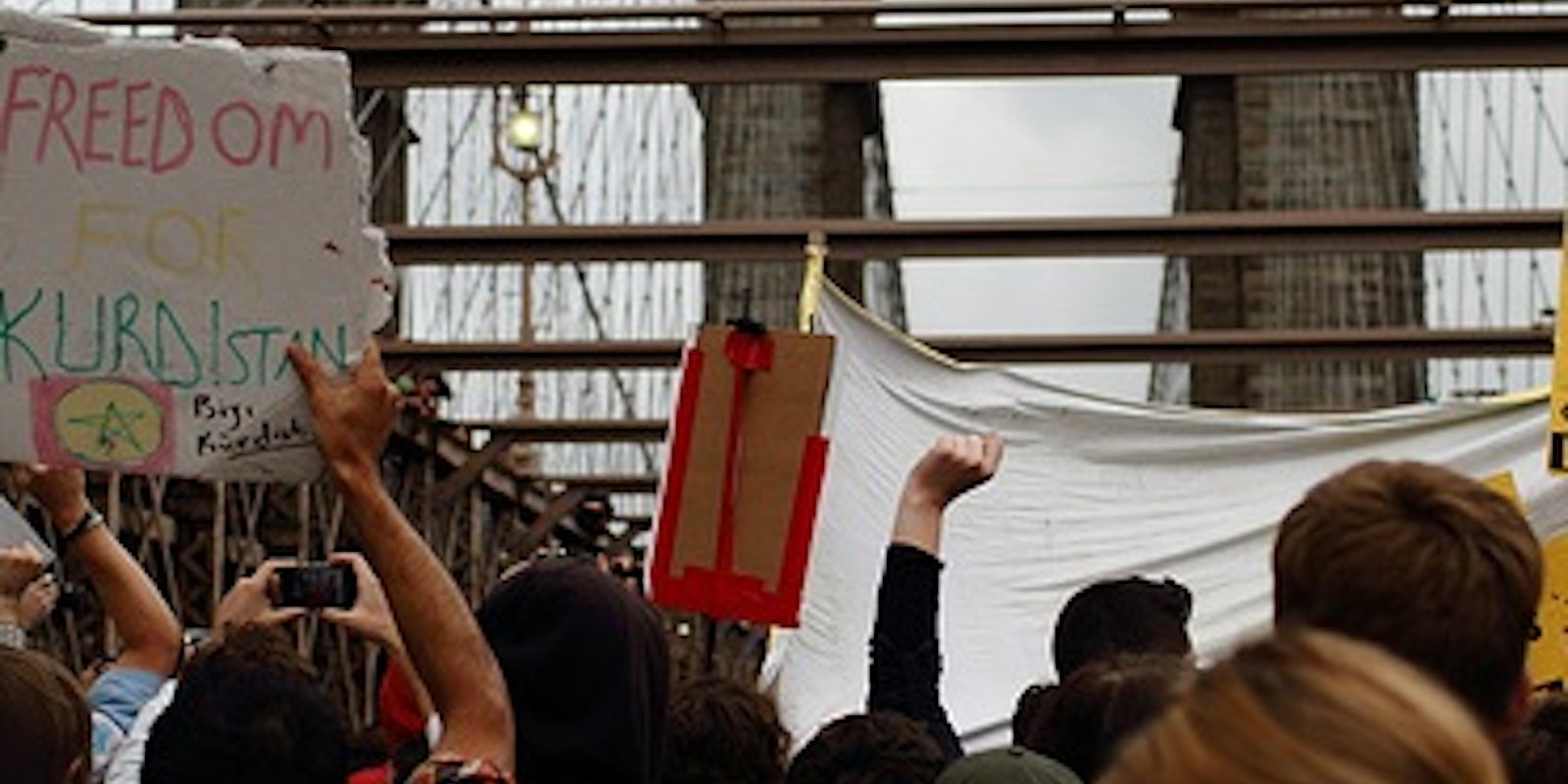The man at the center of a case in which prosecutors fought Twitter to hand over incriminating tweets intends to plead guilty Friday.
Malcolm Harris was arrested in October 2011 as Occupy Wall Street protesters marched on the Brooklyn Bridge. His lawyer said he plans to plead guilty to a disorderly conduct charge.
New York prosecutors attempted to obtain months’ worth of since-deleted tweets, which they claimed would disprove Harris’s statement that police led hundreds of protesters onto the bridge, where many were arrested for obstructing traffic.
Both Harris, 23, and Twitter challenged a subpoena filed by the prosecutors, but Judge Matthew Sciarrino ruled against both. In September, Twitter handed over the data, which remained sealed, after Sciarrino threatened the company with fines and civil contempt. Harris’s lawyer, Martin Stolar, told Reuters that Harris will have the right to challenge the subpoena once his criminal case is resolved.
The attorney claimed Harris was concerned that the tweets might implicate other protesters, and by pleading guilty it is likely that the tweets would remain private—rather than become public evidence in trial.
“This is a way to preserve his right to appeal (the Twitter issue), which is more significant than going to trial on disorderly conduct,” Stolar said.
That said, Sciarrino, who previously warned that those who post public messages online could have no reasonable expectation of privacy, claimed that only Twitter can challenge the order. He ruled that it, and not its users, owns tweets, despite Twitter’s assertion that tweeters retain the rights to their 140 characters.
After speaking with Sciarrino, Stolar believes that Harris will be sentenced to time served. The disorderly conduct charge carries a 15-day jail term as the maximum penalty.
It remains to be seen how the fallout of the case will affect Twitter’s responsibility to its users. Some privacy advocates are worried that the case sets a precedent for Twitter and other social networks to be tasked with protecting users in criminal cases. That said, the company claims it is “committed to fighting for our users.”
Photo by PaulSteinJC/Flickr


